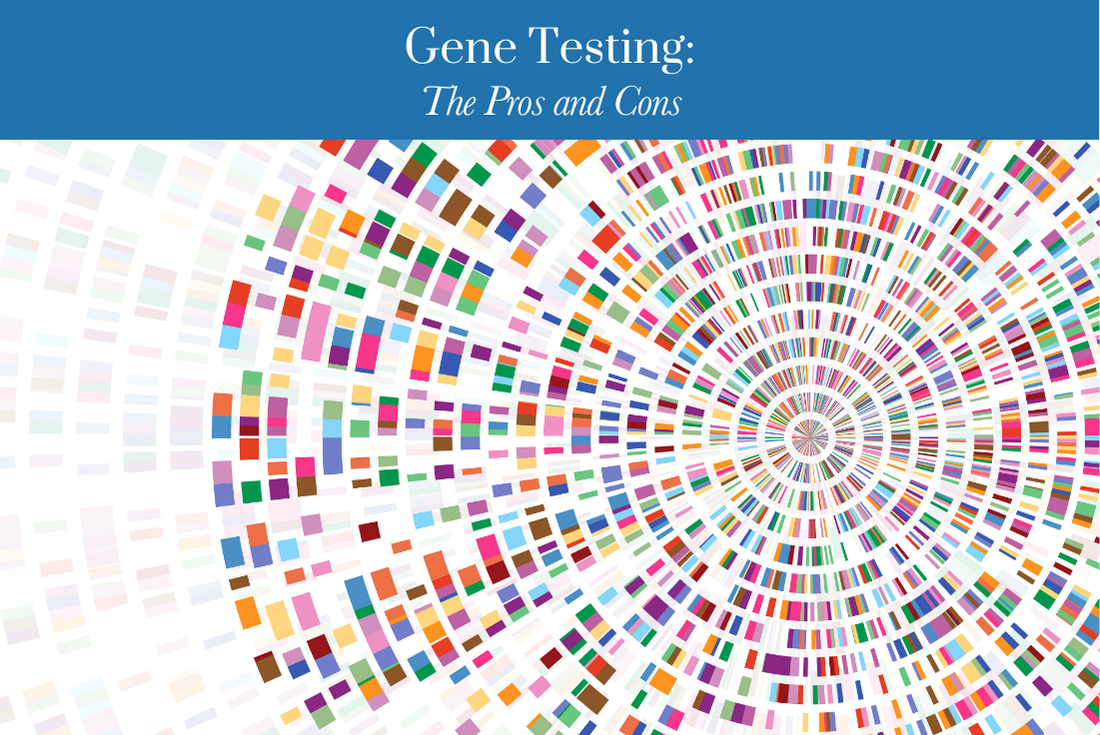
What is Genetic Testing?
Genetic testing involves analyzing DNA to identify changes or mutations in genes, chromosomes, or proteins. These tests can provide valuable information about an individual’s risk of developing certain diseases, inherited conditions, and how their body may respond to specific medications. There are several types of genetic tests, including:
- Diagnostic Testing: Used to confirm or rule out a specific genetic condition.
- Predictive and Presymptomatic Testing: Determines the likelihood of developing a genetic disorder in the future.
- Carrier Testing: Identifies whether an individual carries a gene for an inherited disorder.
- Pharmacogenomic Testing: Analyzes how genes may affect a person’s response to medication.
- Ancestry and Traits Testing: Provides information about ancestry and inherited traits.
Pros of Genetic Testing
- Early Detection and Prevention
Genetic testing can help identify risks for diseases such as cancer, Alzheimer’s, and heart disease, allowing individuals to take proactive steps toward prevention. - Personalized Treatment Plans
Pharmacogenomic testing can help to custom tailor medication choices based on an individual’s genetic profile, possibly improving treatment outcomes and reducing adverse reactions. - Family Planning Insights
Carrier testing can help couples assess their risk of passing genetic conditions to their children, enabling them to make informed reproductive decisions. - Improved Disease Management
For those with a genetic predisposition to a condition, early diagnosis can lead to better management strategies and improved quality of life. - Understanding Ancestry and Traits
Some individuals seek genetic testing to learn more about their ethnic background and inherited traits, providing personal and cultural insights.
Cons of Genetic Testing
- Emotional and Psychological Impact
Learning about genetic risks can be overwhelming and may cause anxiety, stress, or emotional distress, especially if no preventive treatment is available. - Potential for False Positives or Negatives
Genetic tests are not always 100% accurate, just because you have a specific gene does not mean it will or will not actually impact your daily life, leading to possible false-positive or false-negative results, which can create unnecessary worry or false reassurance. - Privacy and Discrimination Concerns
While laws like the Genetic Information Nondiscrimination Act (GINA) protect against genetic discrimination in health insurance and employment, concerns about data privacy still exist. - Limited Medical Actionability
Some genetic findings may not have clear preventive or treatment options, leaving individuals with uncertain information about their health. - Cost and Insurance Coverage
While genetic testing has become more affordable, some specialized tests can be costly and may not be covered by insurance.
Frequently Asked Questions (FAQs)
1. Who should consider genetic testing?
Individuals with a family history of genetic conditions, those planning to have children, individuals with unexplained symptoms, or those who want to tailor their medical treatments can consider genetic testing.
2. How is genetic testing performed?
Genetic tests typically involve collecting a DNA sample through blood, saliva, or a cheek swab. The sample is then analyzed in a laboratory to detect genetic variations.
3. Is genetic testing painful?
No, genetic testing is usually painless. It often involves a simple cheek swab or blood draw.
4. Can genetic testing predict all diseases?
No, genetic testing can only identify risks for certain conditions. Many diseases result from a combination of genetic and environmental factors.
5. Will my genetic information remain confidential?
Most reputable genetic testing companies and healthcare providers have strict privacy policies. However, it’s important to review privacy agreements before testing.
6. Can genetic testing help with medication choices?
Yes, pharmacogenomic testing can provide insights into how your body metabolizes medications (i.e. are you a rapid, or slow or regular metabolizer of the specific medication), allowing doctors to prescribe the most effective treatments with fewer side effects.
7. How much does genetic testing cost?
Costs vary widely depending on the type of test. Some tests are as low as $100, while more comprehensive medical genetic tests can range from several hundred to thousands of dollars.
8. Does insurance cover genetic testing?
Insurance coverage varies based on the type of test and medical necessity. It’s best to check with your provider regarding coverage.
9. What should I do if I test positive for a genetic condition?
Consult with a healthcare provider or genetic counselor to understand your results and discuss potential next steps, including lifestyle changes, preventive measures, and medical interventions.
10. Can genetic testing be wrong?
While genetic testing is highly accurate, there is a small possibility of false positives or negatives. It is important to interpret results in consultation with a medical professional.
Final Thoughts
Genetic testing has the potential to provide valuable insights into health risks, medication responses, and inherited conditions. However, it is essential to consider both the benefits and limitations before undergoing testing. Consulting a healthcare professional like Dr. Matthew Goldenberg, D.O., can help determine if genetic testing is right for you and how to use the results effectively.
Contact Dr. Matthew Goldenberg, D.O.
For expert guidance on genetic testing and personalized healthcare solutions, schedule a consultation with Dr. Goldenberg:
Dr. Matthew Goldenberg, D.O.
Dr. Goldenberg is licensed to see patients in California, Hawaii and Alaska.
📞 Phone: (424) 276-0777
🕘 Business Hours: Monday – Friday: 8:30 am – 5:00 pm
Saturday, Sunday: Closed
Whether you are considering genetic testing for personal health insights or medical reasons, Dr. Goldenberg is here to support you every step of the way.